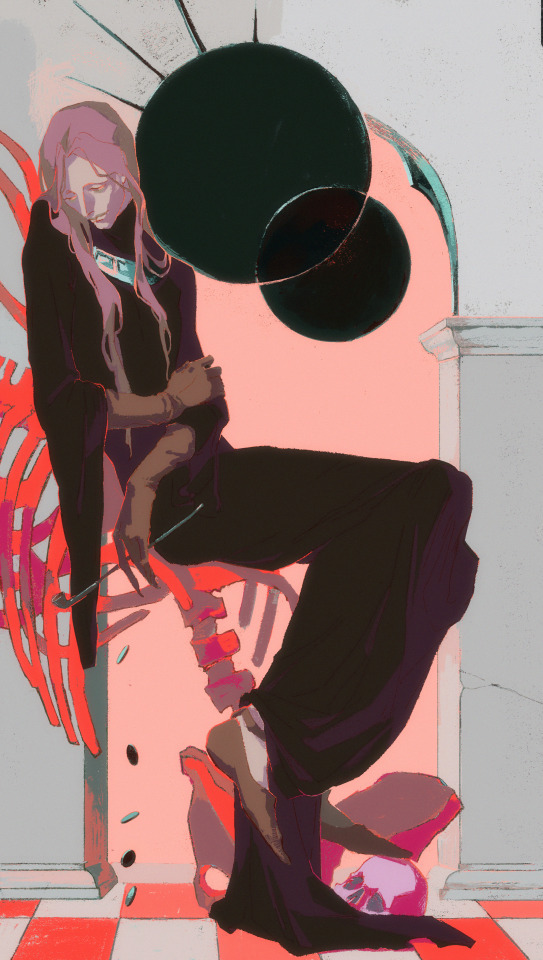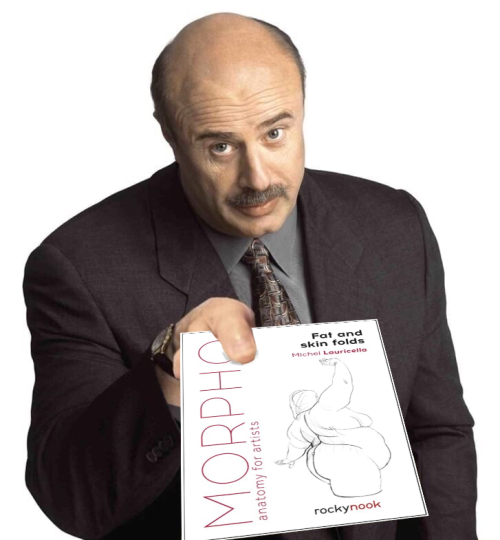Kiwikarshal

More Posts from Kiwikarshal and Others
One of my biggest nitpicks in fiction concerns the feeding of babies. Mothers dying during/shortly after childbirth or the baby being separated form the mother shortly after birth is pretty common in fiction. It is/was also common enough in real life, which is why I think a lot of writers/readers don't think too hard about this. however. Historically, the only reason the vast majority of babies survived being separated from their mother was because there was at least one other woman around to breastfeed them. Before modern formula, yes, people did use other substitutes, but they were rarely, if ever, nutritionally sufficient.
Newborns can't eat adult food. They can't really survive on animal milk. If your story takes place in a world before/without formula, a baby separated from its mother is going to either be nursed by someone else, or starve.
It doesn't have to be a huge plot point, but idk at least don't explicitly describe the situation as excluding the possibility of a wetnurse. "The father or the great grandmother or the neighbor man or the older sibling took and raised the baby completely alone in a cave for a year." Nope. That baby is dead I'm sorry. "The baby was kidnapped shortly after birth by a wizard and hidden away in a secret tower" um quick question was the wizard lactating? "The mother refused to see or touch her child after birth so the baby was left to the care of the ailing grandfather" the grandfather who made the necessary arrangements with women in the neighborhood, right? right? OR THAT GREAT OFFENDER "A newborn baby was left on the doorstep and they brought it in and took care of it no issues" What Are You Going to Feed That Baby. Hello?
Like. It's not impossible, but arrangements are going to have to be made. There are some logistics.

There was a Senshi’s Journal booklet with one of the Japanese manga volumes that showed Senshi’s POV on events up to chapter 51. An anonymous person posted raw scans and translation on a forum. So I figured I’d make a scanlation.
(I tried to translate/romanize some parts that weren’t in the translation, but I’m not exactly great at it).
Keep reading
I was part of the staff of an anime convention all the way through college. We held our meetings on monday nights, and every monday after the meeting, most of us went to taco bell. We would get our terrible garbage food and sit at the tables and hang out until the wee hours of the morning, and sometimes Pat Rothfuss (who lived nearby) would drop by and blow our little nerdy brains. It was a beloved tradition.
One of our staffers was referred to as the Dapper Man, because he could frequently be found wearing a three-piece suit as he went about his daily business. A button-down and waistcoat was his casual attire, and on truly formal occasions, he would produce a tailcoat, tophat, and monocle. Somehow this worked incredibly well for him. Dapper Man was much lauded for his sartorial choices.
When Halloween rolled around, we held our meeting as usual, but with the addition of a bit of ridiculous cosplay holiday-garb. Since Halloween was not actually on a monday, only a few people were in costume. Dapper Man was.
These were the days before the rubber horse mask phenomenon went mainstream. They had just started to be available. Until Dapper Man arrived as a Formal Thoroughbred, I had never seen one.
He was quite dashing, though, with white gloves, a black tailcoat, and a monocle on his wide, staring, rubber horse-eyes. There was a strange but alarming dignity to the look.
We made it through the meeting with the usual chaos expected of ninety nerds left unsupervised with a twenty-thousand dollar budget, and progressed posthaste to TBell.
The local taco bell had a real problem with keeping staff on–for some reason, drug use was prolific among their employees, and they struggled to find consistent workers. But they knew we would be there every monday, and even though we were a big group we were patent and polite, and they generally liked us. So we rolled into taco bell with our usual aplomb.
We straggled into line and started placing orders, and I watched idly as the employee in back began assembling “tacos.” He was visibly blitzed; if he’d been any higher he might have floated off entirely.
He stuck his gloved hand into the tub of shredded lettuce, drew out a handful, looked up and caught sight of Dapper Man: the Equine Gentleman.
He did a double-take and then froze entirely.
You could see the whites of his eyes all the way around. It was very clear that he had absolutely no ability to comprehend what he was seeing; probably he assumed some sort of genteel victorian old god had come to wreak hoofed vengeance upon his taco-y demesne. Possibly he was just grappling with the possibility of reverse centaurs.
Either way, he had become a lettuce-bearing statue.
Taco production ground to a halt. He stood, trapped by the medusan gaze of Dapper Man’s rubber horse mask, until his manager came to yell at him.
At that point he dropped the lettuce and fled the taco bell.
I can only assume he could hear the sound of dress-shoe shod hoofbeats thundering behind him.
For all I know, he may still be fleeing Dapper Man’s dread fursona. We never saw him at the taco bell again.

-Gegg
dead metaphors are really interesting honestly and specifically i’m interested in when they become malapropisms
like, the concept being, people are familiar with the phrase and what people use it to mean metaphorically, but it’s not common knowledge anymore what the metaphor was in literal reference to. people still say “toe the line” but don’t necessarily conjure up the image of people standing at the starting line of a race, forbidden from crossing over it. people still say “the cat is out of the bag” without necessarily knowing it’s a sailors’ expression referring to a whip being brought out for punishment. some metaphors are so dead we don’t even know where they come from; like, there are ideas about what “by hook or by crook” references, but no one is entirely sure. nobody knows what the whole nine yards are.
and then you throw in a malaprop or a mondegreen or two, where because people don’t know what the actual words of the expression refer to, they’re liable to replace them with similar sounding words (see “lack toast and tolerant”). so we can literally go from a phrase referencing a common, everyday part of life to a set of unfixed, contextless sounds with a completely different meaning. that’s fascinating. what an interesting piece of the way language and culture are living, changing, coevolving things.
maybe part of the reason we can’t figure out where some phrases come from is that over time the words themselves have changed! one of the theories about “the whole nine yards” is that it’s a variant of “the whole ball of wax,” which some people further theorize was originally “the whole bailiwick,” meaning just “the whole area”! the addition of “nine yards” might be related to “dressed to the nines,” which might reference the fucking Greek muses! language is so weird and cool! (and I only know any idioms in two languages!)
the point is. I just came across the words “nip it in the butt” in a piece of published, professional fiction, and now I can’t stop giggling.






In which Enki wants his legs back and Ragnvaldr is just tired
It’s been a long time since I messed around with toning, but tee hee hee. Having a lot of fun with these two, wanna do more I love them
-
 zv3zd0chka42 liked this · 2 weeks ago
zv3zd0chka42 liked this · 2 weeks ago -
 emberdune liked this · 2 months ago
emberdune liked this · 2 months ago -
 funky-birb reblogged this · 2 months ago
funky-birb reblogged this · 2 months ago -
 baskervillesblog liked this · 2 months ago
baskervillesblog liked this · 2 months ago -
 alabaster-rose13 reblogged this · 4 months ago
alabaster-rose13 reblogged this · 4 months ago -
 calugaritsa reblogged this · 5 months ago
calugaritsa reblogged this · 5 months ago -
 calugaritsa liked this · 5 months ago
calugaritsa liked this · 5 months ago -
 sayouriii liked this · 5 months ago
sayouriii liked this · 5 months ago -
 implied-gay-sex liked this · 6 months ago
implied-gay-sex liked this · 6 months ago -
 lastregris liked this · 7 months ago
lastregris liked this · 7 months ago -
 businesscasualart liked this · 7 months ago
businesscasualart liked this · 7 months ago -
 killgcre liked this · 7 months ago
killgcre liked this · 7 months ago -
 tauw-nu-fuin liked this · 8 months ago
tauw-nu-fuin liked this · 8 months ago -
 eyeseyesclowneyes liked this · 8 months ago
eyeseyesclowneyes liked this · 8 months ago -
 8ushman liked this · 8 months ago
8ushman liked this · 8 months ago -
 yeoldesouthpole reblogged this · 8 months ago
yeoldesouthpole reblogged this · 8 months ago -
 pinhoes reblogged this · 8 months ago
pinhoes reblogged this · 8 months ago -
 nosleeptillyuggoth reblogged this · 8 months ago
nosleeptillyuggoth reblogged this · 8 months ago -
 bloodmoonemoji liked this · 8 months ago
bloodmoonemoji liked this · 8 months ago -
 cyberdungeon reblogged this · 8 months ago
cyberdungeon reblogged this · 8 months ago -
 et-novum reblogged this · 8 months ago
et-novum reblogged this · 8 months ago -
 8lin liked this · 8 months ago
8lin liked this · 8 months ago -
 zaccphyrr liked this · 9 months ago
zaccphyrr liked this · 9 months ago -
 whisperrholloww liked this · 9 months ago
whisperrholloww liked this · 9 months ago -
 a-child-of-chaos906 reblogged this · 9 months ago
a-child-of-chaos906 reblogged this · 9 months ago -
 alienmythologist liked this · 9 months ago
alienmythologist liked this · 9 months ago -
 koscheys-skull reblogged this · 9 months ago
koscheys-skull reblogged this · 9 months ago -
 croziers-compass liked this · 9 months ago
croziers-compass liked this · 9 months ago -
 ellzilla liked this · 9 months ago
ellzilla liked this · 9 months ago -
 setrija-nibelungenfangirl reblogged this · 10 months ago
setrija-nibelungenfangirl reblogged this · 10 months ago -
 stoikers reblogged this · 10 months ago
stoikers reblogged this · 10 months ago -
 stoikers liked this · 10 months ago
stoikers liked this · 10 months ago -
 astridlumina liked this · 11 months ago
astridlumina liked this · 11 months ago -
 marinecorvid liked this · 11 months ago
marinecorvid liked this · 11 months ago -
 lu0467 liked this · 11 months ago
lu0467 liked this · 11 months ago -
 artspamist reblogged this · 11 months ago
artspamist reblogged this · 11 months ago -
 tastechlorophyll liked this · 11 months ago
tastechlorophyll liked this · 11 months ago -
 portw1111ne liked this · 11 months ago
portw1111ne liked this · 11 months ago -
 fruitcup2256 liked this · 11 months ago
fruitcup2256 liked this · 11 months ago -
 xxxxxxxx0 reblogged this · 11 months ago
xxxxxxxx0 reblogged this · 11 months ago -
 venusgoose liked this · 1 year ago
venusgoose liked this · 1 year ago -
 kutspalin-9 liked this · 1 year ago
kutspalin-9 liked this · 1 year ago -
 vishnyahot liked this · 1 year ago
vishnyahot liked this · 1 year ago -
 unholyjole liked this · 1 year ago
unholyjole liked this · 1 year ago -
 girlsynth liked this · 1 year ago
girlsynth liked this · 1 year ago -
 psychopcmpz liked this · 1 year ago
psychopcmpz liked this · 1 year ago -
 gretchen-fish liked this · 1 year ago
gretchen-fish liked this · 1 year ago -
 xaxalion liked this · 1 year ago
xaxalion liked this · 1 year ago







